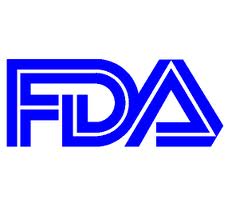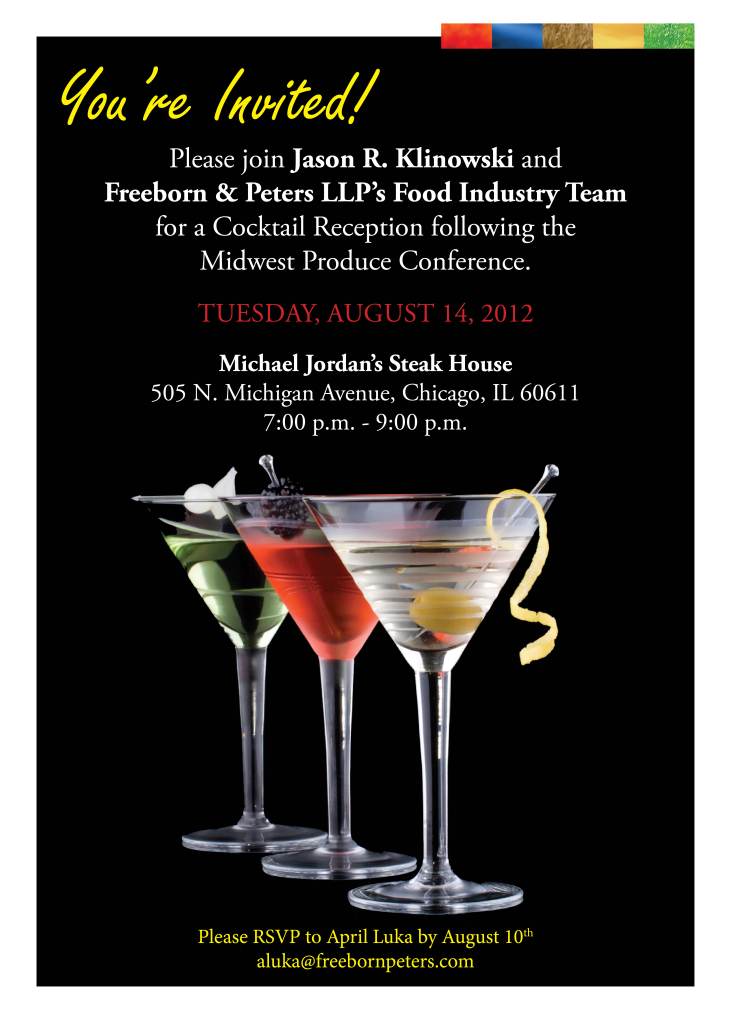The FDA recently issued a DRAFT guidance for the food industry discussing the agency’s current thinking regarding the necessity of food categories in food facility registrations.
See Draft Guidance for Industry: Necessity of the Use of Food Categories in Food Facility Registrations and Updates to Food Categories
DISCLAIMER: The forthcoming discussion relates to draft guidance that is still open for comment, modification and retraction. As such, it is not intended for immediate implementation in its current form and it does not create a legally enforceable responsibility.

Step One: Relevant Rule (FD&C Act & Bioterrorism Act)
Section 305 of the Bioterrorism Act, generally required domestic and foreign facilities that manufacture, process, pack, or hold food for human or animal consumption in the United States to register with FDA by December 12, 2003 (See 68 FR 58894). This section also required facilities to submit registrations to FDA containing information regarding applicable food product categories as identified in 21 CFR 170.3.
Step Two: Necessity to be Determined by the FDA Through Guidance
Section 415(a)(2) of the FD&C Act, as added by section 305 of the Bioterrorism Act, provided in relevant part that, when determined necessary by FDA “through guidance,” a registrant must submit a registration to FDA containing information necessary to notify FDA of the general food category (as identified in 21 CFR 170.3) of food manufactured, processed, packed, or held at such facility.
Step Three: FDA Issued the Requisite Guidance and Finding of Necessity
On July 17, 2003, FDA issued a guidance stating that the agency had determined that the inclusion of food product categories in food facility registrations was necessary for a quick, accurate, and focused response to an actual or potential bioterrorist incident or other food-related emergency (see 68 FR 42415).
Step Four: Net Result…
Section 305 of the Bioterrorism Act, in relevant part, requires a food facility registrant to submit a registration to FDA containing information necessary to notify FDA of the general food category (as identified in 21 CFR 170.3) of food manufactured, processed, packed, or held at such facility.

What’s New Under FSMA?
Step One: The New Relevant Rule
FSMA, enacted on January 4, 2011, amended section 415 of the FD&C Act. Section 415(a)(2) of the FD&C Act, as amended by section 102 of FSMA, now provides in relevant part that, when determined necessary by FDA “through guidance,” a registrant must submit a registration to FDA containing information necessary to notify FDA of the general food category (as identified in 21 CFR 170.3 or any other food categories, as determined appropriate by FDA, including by guidance) of any food manufactured, processed, packed, or held at such facility.
Step Two: Necessity to be Determined by FDA Through Guidance
FDA believes that it is necessary for a food facility to submit to FDA a registration containing the general food category as identified in 21 CFR 170.3 and any other food categories as identified below, if applicable, for a quick, accurate, and focused response to a food-safety related issue or an actual or potential bioterrorist incident, other food-related emergency, or food safety incident.
FDA believes that information about a facility’s food categories is a key element to allow for rapid communications between FDA and facilities directly impacted by actual or potential bioterrorist attacks, other food-related emergencies, or food safety incidents. Information about the categories of food a facility handles currently assists FDA in conducting investigations and surveillance operations in response to food-related emergencies. These categories also enable FDA to quickly alert facilities potentially affected by such an incident if FDA receives information indicating the type of food affected.
Section 102 of FSMA, also provides in relevant part that FDA may, through guidance, determine that additional food categories, other than those listed in 21 CFR 170.3, are appropriate for the purposes of food facility registration under section 415 of the FD&C Act.
Step Three: FDA Issued a DRAFT Version of the Requisite Guidance and Finding of Necessity
This draft guidance document also addressed the FDA’s finding of necessity needed to include additional food categories into the food facility registration process. To this end, the “FDA believes that the following additional food categories are appropriate for food facility registration and will include such categories as mandatory fields in the food facility registration form when FDA finalizes this guidance”:
Additional Food Categories for Foods for Human Consumption:
- Acidified Food (see 21 CFR 114.3(b));
- Cheese and Cheese Product Categories: Soft, Ripened Cheese; Semi-Soft Cheese; Hard Cheese; Other Cheeses and Cheese Products;
- Dietary Supplement Categories: Proteins, Amino Acids, Fats and Lipid Substances; Animal By-Products and Extracts; Herbals and Botanicals;
- Fisher/Seafood Product Categories: Fin Fish, Whole or Filet; Shellfish; Ready to Eat (RTE) Fishery Products; Processed and Other Fishery Products;
- Fruit and Fruit Products: Fresh Cut Produce; Raw Agricultural Commodities; Other Fruit and Fruit Products;
- Fruit or Vegetable Juice, Pulp or Concentrate Products;
- Low Acid Canned Food (LACF) Products (see 21 CFR 113.3(n));
- Nuts and Edible Seed Product Categories: Nut and Nut Products; Edible Seed and Edible Seed Products;
- Shell Egg and Egg Product Categories: Chicken Egg and Egg Products; Other Egg and Egg Products;
- Vegetable and Vegetable Product Categories: Fresh Cut Products; Raw Agricultural Commodities; Other Vegetable and Vegetable Products; and
- Baby (Infant and Junior) Food Products Including Infant Formula.
Additional Food Categories for Foods for Animal Consumption:
- Grain or Grain Products (i.e., barley, grain sorghums, maize, oat, rice, rye, wheat, other grains or grain products);
- Oilseed or Oilseed Products (i.e., cottonseed, soybeans, other oilseeds or oilseed products);
- Alfalfa Products or Lespedeza Products;
- Amino Acids or Related Products;
- Animal-Derived Products;
- Brewer Products;
- Chemical Preservatives;
- Citrus Products;
- Distillery Products;
- Enzymes;
- Fats or Oils;
- Fermentation Products;
- Marine Products;
- Milk Products;
- Minerals or Mineral Products;
- Miscellaneous or Special Purpose Products;
- Molasses or Molasses Products;
- Non-protein Nitrogen Products;
- Peanut Products;
- Recycled Animal Waste Products;
- Screenings;
- Vitamins or Vitamin Products;
- Yeast Products;
- Mixed Feed (e.g., poultry, livestock, equine);
- Pet Food;
- Pet Treats or Pet Chews;
- Pet Supplements (e.g., vitamins, minerals); and
- If none of the above food categories apply, print the applicable food category or categories (that does not or do not appear above).
Step Four: Net Result… (coming some in final form)
Once FDA issues the final version of the aforementioned guidance document, the foregoing rules about registrations and additional food category disclosures will become a mandatory requirement for food facilities and a legally enforceable obligation under FSMA.
 When a produce company files a chapter 11 bankruptcy case, one of the first questions my PACA trust creditor clients ask is whether the debtor will be able to keep any cash it may have in the bank or any cash it receives from collecting its accounts receivable.
When a produce company files a chapter 11 bankruptcy case, one of the first questions my PACA trust creditor clients ask is whether the debtor will be able to keep any cash it may have in the bank or any cash it receives from collecting its accounts receivable.







